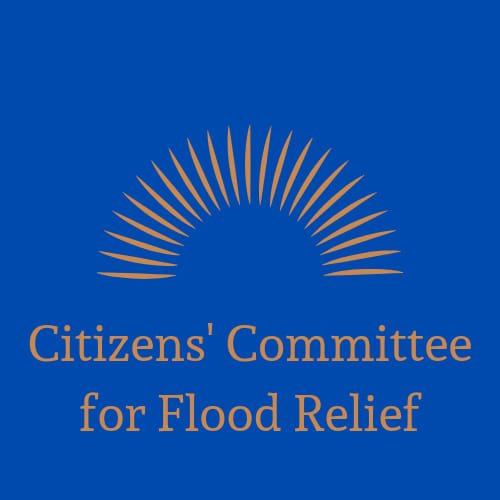The Next Step Cohort
A peer learning and participatory grant-making program advancing community-led solutions to climate displacement
What is the Next Step Cohort?
The Climigration Network formed a team of community and Indigenous leaders and field leaders in adaptation practice, facilitation, and philanthropy to design a new program to directly invest in the wisdom, leadership, and efforts of communities facing displacement from the climate crisis. Over the course of 2022, we created the Next Step Cohort (NSC), an award-winning peer learning and participatory grant-making initiative to resource and grow community-led approaches to climate displacement.
-
Carri Hulet, CH Consulting
Rachel Isacoff, The Rockefeller Foundation
Rebecca Jim, Local Environmental Action Demanded (LEAD) Agency in Northeast Oklahoma
Susan Liley, Citizens’ Committee for Flood Relief in De Soto, Missouri
Kelly Leilani Main, Buy-In Community Planning
Elder Chief Shirell Parfait-Dardar and Deputy Chief Crystlyn Rodrigue, Grand Caillou/Dulac Band of Biloxi-Chitimacha-Choctaw Indians of Louisiana
David Southgate, Un Nuevo Amanecer, Inc.
How does it work?
The Next Step Cohort invests in community-led solutions to climate displacement, and the Climigration Network amplifies and applies local learnings and approaches through our national network of communities, practitioners, and institutions.
Centering peer support & participatory grant-making: Cohort members distribute funding using a participatory giving approach and meet regularly as a group to share learnings and progress, work through challenges together, and make decisions about the future of the program.
Investing in community-led solutions: Community leaders design and implement innovative projects to address climate risk and displacement, rooted in their communities’ needs, culture, and lifeways.
Growing capacity and resilience through relationships: Community leaders have a supportive peer group for learning and collaborating. The Climigration Network mobilizes the knowledge, skills, and influence of our members to advance community leaders’ projects and leverage additional funding.
Scaling community solutions to have national impacts: The Climigration Network amplifies NSC members’ grassroots innovations to:
Create a knowledge-base for other communities facing climate displacement
Apply community-led innovations to national policy frameworks
Educate and train policymakers, practitioners, and researchers
Next Step Cohort Members
Rebecca Jim, Local Environmental Action Demanded (LEAD) Agency in Northeast Oklahoma
LEAD Agency serves a corner of Northeast Oklahoma where the federal government once created a dumping ground for remnants of 9 Tribes and that now faces flooding from Tar Creek, flowing through one of the first superfund sites. Nearly 1500 Ottawa County homes are exposed to flood waters heavy with lead, cadmium, arsenic, zinc, and manganese.
David Southgate, Un Nuevo Amanecer, Inc. (UNA) in Playa de Ponce, Puerto Rico
UNA is a community-rooted consortium serving 19 neighborhoods in south Puerto Rico's largest coastal barrio, Playa de Ponce, where 11,000 people endure catastrophic climate disasters one after the other. The barrio is determining what resilience means for their communities and reckoning with obsolete stormwater management, chronic disinvestment, and people displaced in the name of economic development.
Susan Liley, Citizens’ Committee for Flood Relief (CCFR) in De Soto, Missouri
CCFR serves the De Soto community, where 6,500 residents have been devastated by flash floods year after year – 4 major floods since 2015. Artesian wells and toxic runoff from development and mining activities flow into Joachim Creek, a Mississippi River tributary, and flood homes and the town’s main street when it rains.
Deputy Chief Crystlyn Rodrigue, Grand Caillou/Dulac Band of Biloxi-Chitimacha-Choctaw Indians of Louisiana
The Grand Caillou/Dulac Band Tribal peoples have been living in their ancestral village along Louisiana’s Gulf Coast for centuries. Traditions and cultural practices that were handed down by ancestors are far less sustaining due to drastic environmental changes brought on by oil and gas exploration, erosion, saltwater intrusion, and climate change. In an area that is losing a football field of land every 100 minutes, Grand Caillou/Dulac is fighting to preserve their homelands, culture, and identity.
Learn More about NSC Members’ Work:
Watch Cherokee elder Rebecca Jim’s fight to restore Tar Creek in “ᏗᏂᏠᎯ ᎤᏪᏯ (Meet Me At The Creek)” – a documentary by Loren Waters
Read more about David Southgate and UNA’s community-led surveying and planning efforts in Playa de Ponce, PR
Read more about Susan Liley and CCFR leading a coalition to get buyout funding for De Soto, MO
Watch Elder Chief Shirell Parfait-Dardar tell the story of Grand Caillou/Dulac in “Killer Red Fox”










